The Legend of Zelda: Tears of the Kingdom | Critical Consensus
Critics praise Nintendo for expanding on its 2017 masterpiece in one of the Switch's most impressive titles to date
Sign up for the GI Daily here to get the biggest news straight to your inbox
Have you heard? The new Zelda game launched today.
The Legend of Zelda: Tears of the Kingdom is the direct sequel to Switch launch title Breath of the Wild, and its arrival marks the end of a six-year wait to find out the answer to one of the burning questions about Nintendo's current generation: having successfully reinvented one of your most beloved franchises, what do you do next?
Whatever Nintendo has done to address this – the platform holder has been characteristically secretive about Tears of the Kingdom in the run-up to its release, and critics are largely honouring that secrecy – it seems to have worked. At the time of writing, the game's Metacritic score stands at 96 (just one point below Breath of the Wild) after 91 reviews.
In their five-star review for The Gamer, Jade King writes that Tears of the Kingdom is a "game that equals the majesty of its forebear."
"You're bombarded by curiosity at every turn, wondering how far the limits can be pushed before Zelda's open arms spread forward to smother them," they write. "I had little faith in lightning striking twice, and I couldn't be more delighted to be proven wrong."
In her 10/10 review for NintendoLife, Alana Hagues adds: "Somehow, Tears of the Kingdom does the impossible and makes Breath of the Wild feel like a proof of concept; it takes everything its predecessor does, improves upon every single aspect, and gives you even more freedom, an even bigger world, and tons more secrets to uncover. It's frankly staggering and makes for an absolutely incredible experience."
Eurogamer's Edwin Evans-Thirwell, who gave the game four stars in the site's first scored review in years, described Tears of the Kingdom as "astonishing, quite literally top-to-bottom sequel, adding complexity and splendor to the Breath of the Wild formula without sacrificing its enchantment."
Fair warning: while the reviews we read do not give away any major reveals (not that we would share them here), those who wish to go into Tears of the Kingdom without any prior knowledge or preconceptions should turn back now. [Editor's note: That means you, Marie]
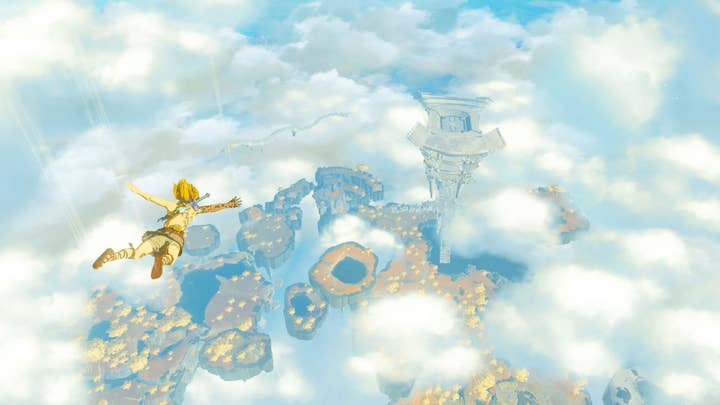
One thing consistently praised by most critics was the use of the world. While based on Breath of the Wild's Hyrule, significant changes have been made. There are the sky islands Nintendo has been showing off in trailers, but also a network of caves beneath the surface, and the main world has been transformed too.
"Tears isn't just retreading stories and locations," writes Gene Park in The Washington Post's four-star review. "Breath veterans will find new secrets and challenges in old, familiar places. Every revisit to every location of note from the last game will contain something shocking, frightening or wondrous. Plus, completing many stories will change the world around you in meaningful ways, oftentimes beautifying or restoring the land."
Hagues says she "couldn't get enough of travelling between all three maps," adding: "The contrast between the Sky, Surface, and Depth is refreshing, with all three bringing different styles of gameplay, visuals, and music to the table, but they never feel detached from one another. And all three maps are seamless – there are no load times as you jump from the Surface to the Depths, or as you shoot yourself from the Surface to the Sky."
The story is also more prominent compared to Breath of the Wild, with King describing this as "the most narrative heavy Zelda game I can recall"
"Somehow, Tears of the Kingdom does the impossible and makes Breath of the Wild feel like a proof of concept"
Alanah Hagues, NintendoLife
Park expands on this: "While Breath redefined what massive open-world games can be, it is relatively empty of scripted adventure. Not so with Tears, where seemingly every character in the world has purpose, whether it's to add more context to a mystery or lead you to more adventure."
He gives the example of side quests; rather than simple fetching tasks to gain currency or an item, these are instead "full stories with complicated relationships and are often drenched with consequence." This ties in with the Hagues' point that, while it's essentially geographically identical to Breath of the Wild's Hyrule, Tears of the Kingdom's world "feels much more lived in." That in itself is aided by the fact Link has companions that join him on his journey this time.
"Breath of the Wild felt married to its own loneliness, while its sequel is eager to show that Link isn't alone anymore, and has allies to call upon," King explains. "There are still several instances of worthwhile solitude to bask in, but now friends and strangers are there to help."
Nintendo only confirmed recently that dungeons, a staple of the Zelda series, return in Tears of the Kingdom following the mixed reception to Breath of the Wild's Divine Beasts. However, critics warn that these are not the puzzle-packed labyrinths you might find in the likes of Ocarina of Time or Skyward Sword, with Hagues noting that they "manage to blend the open nature of BOTW nicely with those classic multi-floor dungeons of the past." King, meanwhile, adds that the return of these time-honoured Zelda elements "don't always gel with the game's freestyle identity."
For those worried Nintendo would retreat too far into the decades-old formula, the Shrines also return with more than 150 spread across the map – although Park notes these "won't feel as fresh and revolutionary as [they] did in 2017."
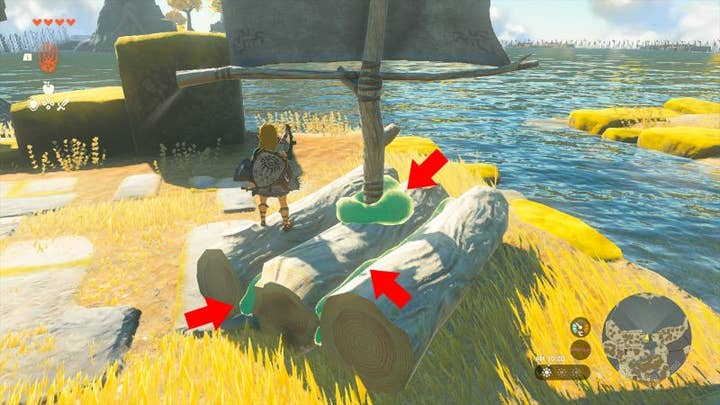
The Shrines, the dungeons and the world all set the stage for Tears of the Kingdom's biggest change: solving puzzles with new abilities that lean more towards player creativity. As Nintendo revealed back in March, Link has four new moves: Ultrahand, for moving and combining large objects in the world; Fuse, for combining weapons and other items; Recall, to reverse an object in time; and Ascent, to travel through any solid matter above him.
These are used in combat, exploration and puzzle-solving, with the internet already awash with player-created vehicles. For Park, the possibilities are the biggest appeal of the game.
"It unlocks parts of your creativity, forcing you to use elementary knowledge of physics and chemistry to overcome challenges," he writes. "Minecraft revolutionized gaming by introducing deep creative elements, but Tears combines them with the luxurious animations and polish of a complex narrative adventure."
"Zelda used to be ingrained in tradition it was afraid to change. Now it gives us the freedom to experiment to our heart's content"
Jade King, The Gamer
King agrees, adding: "There is no set solution in most scenarios, Nintendo trusts you to use your imagination and work out how the environment can be bent into an unorthodox means of progression. Early on, I felt like the smartest person on the planet by ignoring the clear instructions I was given to build a fancy boat, and instead I constructed the longest log bridge in the world and waltzed across it. I'm pretty sure this wasn't the intention, but I was still rewarded for thinking outside the box. You always are, and that puts Tears of the Kingdom a step above every other open world out there.
"Zelda used to be so ingrained in tradition that it was afraid to change, while now it is handing us the tools and giving us the freedom to experiment to our heart's content."
Hagues adds that while the possibilities may seem endless, Tears of the Kingdom still feels manageable. She writes: "If you're not the most creative person, you don't need to worry, as you'll always find items lying around that hint at what you can build, or use the unlockable Autobuild skill which logs your previous creations and allows you to recreate them by using the necessary materials in front of you. You can go for simple solutions or the most elaborate builds to solve pretty much everything."
Ultrahand appears to be the most enjoyable of the abilities, with Evans-Thirwell noting that Fuse "feels like a response to complaints about the first game's weapon degradation" but not one that adds meaningful interactions in the way Ultrahand does.
"The trouble is that a lot of Fuse combinations are duds - stick a mushroom to a shield and hey presto, you've got a mushroom stuck to a shield," he says. "It's quietly funny the first time it happens, less so on the tentth attempt.
"Other combinations are useful but unexciting, such as swords that deal +17 damage or have a longer reach. But as with the returning cooking system - which now benefits from handy recipe cards that automatically fill Link's hands with the ingredients for each dish you've discovered - the disappointment of this fades as you learn more and more combinations and slowly get to grips with the underlying logic."
A combination of this freeform approach to building items and vehicles, the vast world, and the ageing Switch hardware occasionally means the game takes its toll on the console, with Hagues observing that "it's evident Tears of the Kingdom is pushing the system to its limits."
"The frame rate is capped at 30fps, both handheld and docked, and for the most part, the game stays around or just below that," she explains. "During elaborate Ultrahand builds or busy fights and locations, performance can dip to the low twenties (or even lower) fairly frequently. It's not hugely disruptive, and it didn't feel any worse than Breath of the Wild – particularly after Nintendo released a pre-launch patch during the review period – but it serves as a staunch reminder of the now-six-year-old console's limitations.
"Still, it's pretty amazing that this entire world has been squeezed onto a little Switch cartridge, and those performance issues didn't affect our enjoyment at all."
Park agrees, describing Tears of the Kingdom as "a miracle of engineering and elegant artifice."
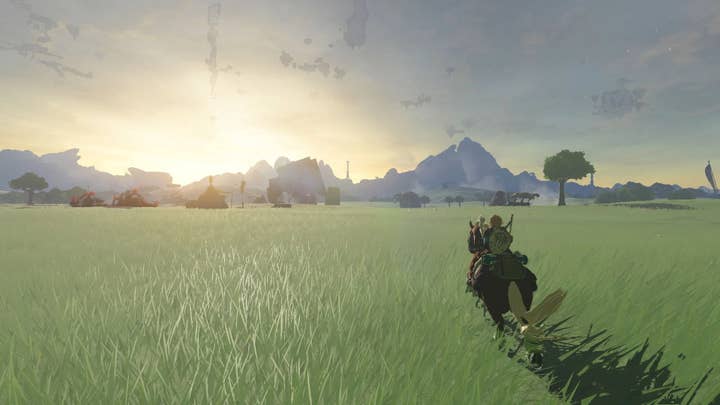
Not everyone is as enamoured with Tears of the Kingdom, however. Gfinity's Josh Brown gave the game 6/10 in his review – currently the lowest score (the next highest is 80, or four stars). Brown's perspective is that, for long-running Zelda fans displeased with the shift made by Breath of the Wild or folks who didn't get on with the 2017 title, Tears of the Kingdom is unlikely to change their minds.
"For the most part, it's the exact same bio-diverse world you explored all those years ago, only with more natural caves, a sprawling underground chasm, and frankly too many rock formations in the sky to really care about," he writes. "New tales are spun throughout it, yet each one has a disappointing air of familiarity. Breath of the Wild's fiddly controls are pushed further to the breaking point, all in an effort to stack more systems on top of those that split the fanbase almost as much as Toon Link."
The dungeons, he argues, are still too close to the formula of Breath of the Wild's Divine Beasts and "can easily be completed in under an hour without much thought" while the Fuse and Ultrahand abilities touted by other outlets "create far too many ways to solve puzzles that, in my view, detract from the brain-teasing that made Zelda games so delightful in the first place."
"If [Breath of the Wild] left you feeling a little deflated, Tears of the Kingdom is unlikely to convince you that it's the best way forward for the franchise"
Josh Brown, Gfinity
He adds: "On paper, having a million different ways to solve an in-game dilemma sounds great. In practice, it makes swathes of content redundant, leaving little left but a story that takes far too long to advance. A good puzzle is always fun to solve, but when the world is littered with the things, a pat on the back isn't enough of a reason to seek them out."
Brown concluded: "If the original open-world adventure left you feeling a little deflated, Tears of the Kingdom is unlikely to convince you that it's the best way forward for the franchise."
Other reviews we read all heaped praise upon the title, and the excitement for Tears of the Kingdom today suggests the game could well beat previous Zelda launches. And, as with Breath of the Wild, the game leaves some critics wondering about the future of the series.
"Tears of the Kingdom is a direct sequel, for all its changes, and Zelda tends not to go in for those: it used to wipe the slate clean each time, casting the last game's baggage aside like so much surplus equipment, and setting out for the horizon," writes Evans-Thirwell. "I'd like the next Zelda to do that again. But that's a problem for tomorrow."
Concluding her review, Hagues asked – and answered – the billion-dollar question: is Tears of the Kingdom better than Breath of the Wild?
"That'll be down to personal preference, but we can guarantee that you'll adore this if you loved its predecessor," she writes. "Tears of the Kingdom recaptures that magic in new and exciting ways while improving upon and polishing almost every facet. This is an enormous, breathtaking sequel, and a very special video game."
Sign up for the GI Daily here to get the biggest news straight to your inbox
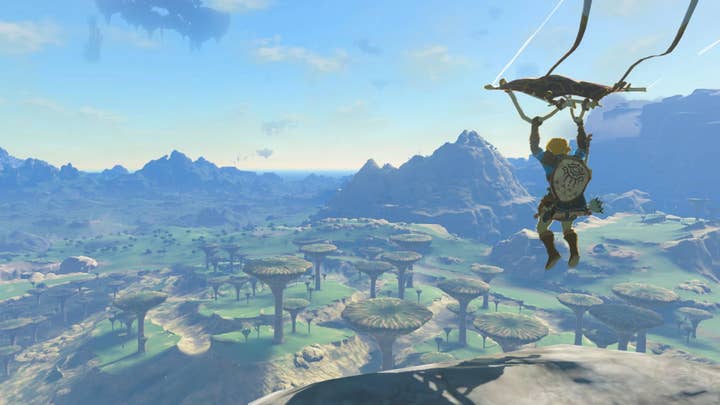

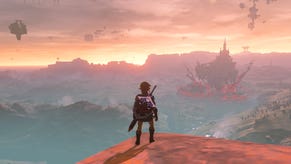
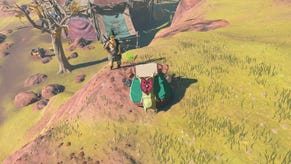
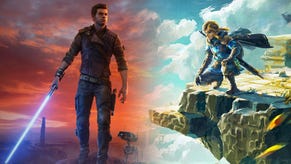
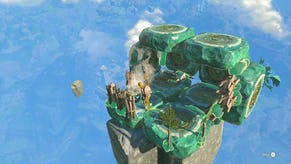

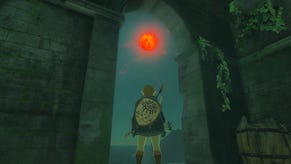
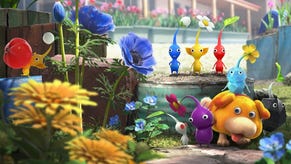
.jpg?width=291&height=164&fit=crop&quality=80&format=jpg&auto=webp)